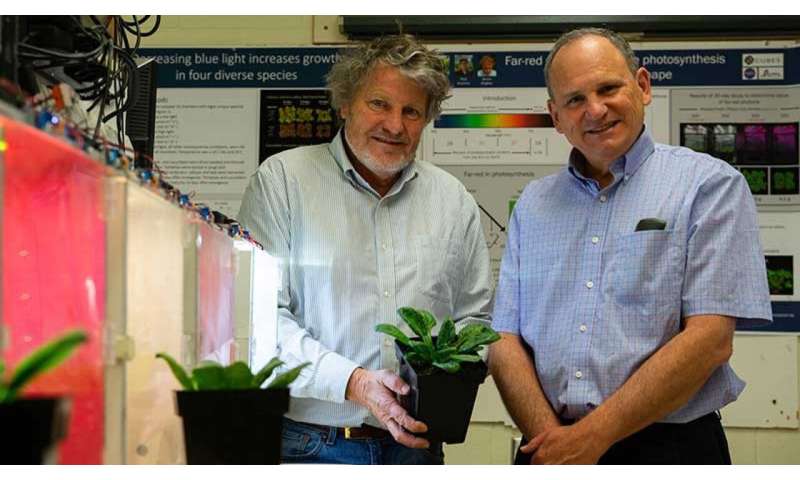Growing Plants on Mars: USU Scientists Among Multi-Institution Team Receiving NASA Award

What will it take to sustain humans on Mars? The answer is self-sufficiency far away from Earth's protective harbor.
Utah State University scientists Bruce Bugbee and Lance Seefeldt were part of the team that successfully conducted a five-year, $15 million NASA-funded multi-institution project exploring this question. NASA recognized their team's efforts April 24, with an agency Group Achievement Award. The recognition is one of 14 NASA Honor Awards bestowed annually.
Botanist Bugbee and biochemist Seefeldt were among the principal investigators, appointed in 2017, for the Center for Utilization of Biological Engineering in Space (CUBES) Space Technology Research Institute (STRI). The center, whose partnering institutions include the University of California, Berkeley; University of Florida, Stanford University and University of California, Davis along with Utah State, is aimed at supporting biomanufacturing for deep space exploration.
CUBES is focused on cutting-edge biotechnology to optimize food and plant-made therapeutics in space, as well as to enable production of biomaterials and energy.
"It will take more than a year to get supplies from Earth to Mars, and that supply line is too slow and costly," says Seefeldt, professor and head of USU's Department of Chemistry and Biochemistry. "Mars explorers will have to generate their own food, pharmaceuticals and infrastructure."
Bugbee, who has conducted space-related plant experiments over three decades, says Mars greenhouses will need to be constructed underground to withstand the planet's harsh environment. CUBES researchers are developing ways to supply growth chambers with sunlight and nutrients.
"We're determining the kinds of plants, including rice, lettuce, potatoes and possibly soybeans, that can be successfully grown and will provide a nutritionally sustaining diet for the Mars residents," says Bugbee, professor in USU's Department of Plants, Soils and Climate and director of the Crop Physiology Laboratory.
Bugbee and Seefeldt, both past recipients of USU's highest research honor, the D. Wynne Thorne Career Research Award, praise the CUBES team, including USU students who have contributed to the research.
"This is an all-star team, and the synergistic opportunities are astounding," Bugbee says.
He and Seefeldt note knowledge gained from the project will not only advance efforts to make Mars missions sustainable for humans, but will aid food-growing efforts affected by climate change and other challenges here on Earth.
More information:
NASA agency Group Achievement Award
Mary-Ann Muffoletto, PIO, Utah State University, maryann.muffoletto@usu.edu
Experts:
Lance Seefeldt, Professor, Utah State University Department of Chemistry and Biochemistry, 435-797-1619, lance.seefeldt@usu.edu
Bruce Bugbee, Professor, Utah State University Department of Plants, Soils and Climate, bruce.bugbee@usu.edu
Provided by Utah State University